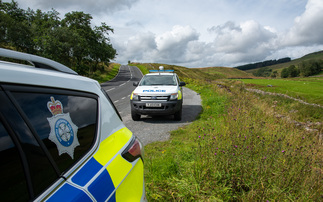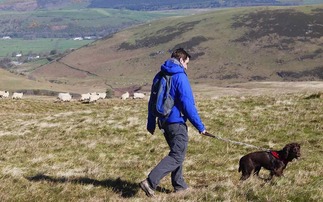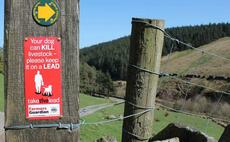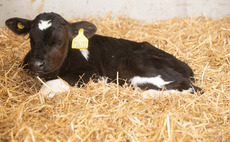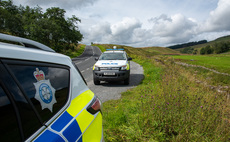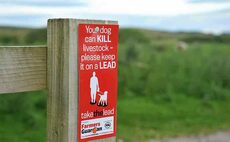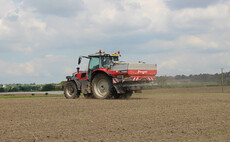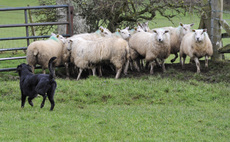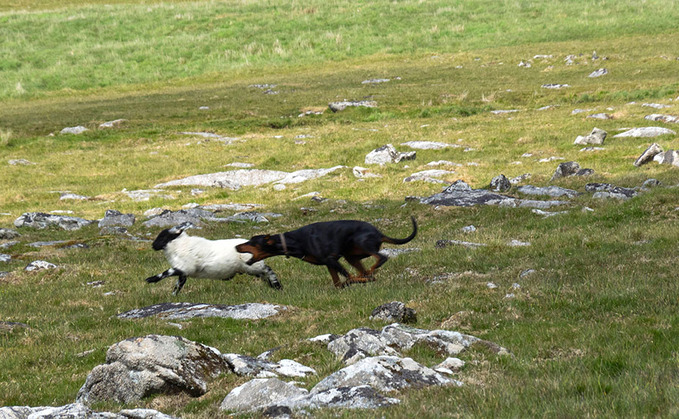
An increasing problem within British agriculture, and something which the National Sheep Association (NSA) have said they are dealing with almost on a daily basis, livestock worrying is devastating for both the farmer and the livestock involved.
In last year's NSA webinar, Rebecca Ironmonger, dispute resolution solicitor of Roythorne solicitors, explained the current law surrounding livestock worrying, the criminal aspects of the offence and forthcoming changes to the law.
READ NOW: Livestock worrying costs farmers £2.4 million a year
Where does the law currently stand?
The act which currently governs livestock worrying is the Dogs (Protection of Livestock) Act 1953, in which the core offence is defined as the owner or person in charge of a dog which worries livestock, commits a criminal offence.
Ms Ironmonger said the worrying of livestock means attacking and chasing livestock in such a way which could reasonably cause injury to the animal, suffering, abortion, and loss of production.
She added it could also mean being at large in a field or an enclosure where there are sheep i.e., the dog not being on a lead or under control.
An important part of the offence is that it must occur on agricultural land, says Ms Ironmonger.
She added: "Agricultural land under the act means arable, meadow or grazing land, or land used for the purpose of pig or poultry farming or market gardens, allotments, nursery grounds and orchards."
When looking at the legalities surrounding common land, Ms Ironmonger said as long as the farmer has the right to graze their sheep on common land, then it should be covered by this particular offence.
"Generally, there will be a right for you to challenge someone who has been in control of a dog on the land you are grazing your sheep on, if they are worrying your livestock. I would suggest speaking to the owner of the common land to see if they can ban people with dogs on the land."
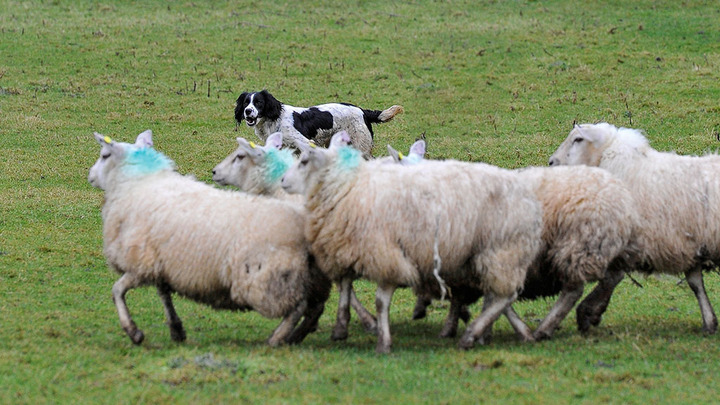
The criminal aspects of livestock worrying
It is a criminal offence to allow a dog to worry livestock across private land or land which a farmer has grazing rights on, therefore offenders can be prosecuted said Ms Ironmonger.
However, she explained the penalty is low, and in England and Wales the fine for anyone who is prosecuted and convicted of livestock worrying is a maximum of £1000, plus costs and any compensation order made.
In the case where a dog is found worrying livestock the police do have the power to seize a dog, where it is unclear who has control of the dog.
However, if or when the owner is found, as the law currently stands the police will have to return the dog, said Ms Ironmonger.
In some cases, unclaimed dogs will be destroyed, but generally if the owner is found the dog will be returned.
When looking at what legal actions famers can take, Ms Ironmonger said legally a farmer can shoot a dog which is worrying livestock, but only in circumstances where the dog is an immediate danger to livestock and there is no other reasonable option.
She added: "There will generally be another reasonable option instead of shooting the animal because there are so many considerations which need to be accounted for, if this is an action to be considered."
The considerations Ms Ironmonger suggested include the Animal Welfare Act 2006, as even though a farmer is legally allowed to shoot a dog, if the animal is not shot accurately and suffers as a result, the farmer could come under scrutiny.
"If you have shot someone's dog it is likely the owner is going to be angry, so they are likely to press any for charges which can be brought by the police and crown prosecution services involving any animal welfare offences, so please be very careful of that."
Ms Ironmonger said farmers also needed to consider that a dog worrying livestock is most likely on their land because someone has lost control of it, and therefore that person could still be in the vicinity.
"Íæż½ã½ã need to think about health and safety and whether shooting that dog is going to cause potential injury to any person on that land. They also need to ensure they are acting within the conditions of their shotgun or firearms license."
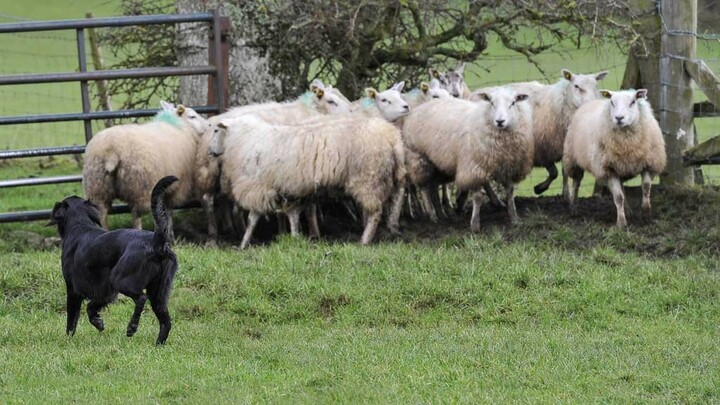
Compensation orders
A compensation order is made upon conviction, requiring the defendant to pay compensation for the crime committed.
Ms Ironmonger said an example of this could be if the defendants dog had killed five sheep and caused five more sheep to abort their lambs, then the court may make a compensation order for the value of the five dead sheep, and for the expected value of the lambs lost, as well as any vets bills and additional costs caused by the livestock worrying.
She explained the farmers must make it clear to the police that they want a compensation order to be considered and provide details of any losses suffered.
"The earlier you tell the police you want compensation the better. It is always a good idea to have a good, detailed list as early as possible of any costs you have covered and any losses you have suffered."
However, an order is only paid if the defendant has the means to pay, and if they cannot afford it, it will likely be lowered below the £1000 fine, or they may not have a compensation order made against them at all.
READ NOW: Police identify man after sheep killed by Alsatian dog on Dartmoor
If the police or crown prosecution service does not prosecute the offender, as there is not enough evidence, the options are limited in terms of the criminal possibilities.
Ms Ironmonger said private prosecutions are an option, however, are very complex and expensive.
"I would not recommend going down that route unless you have a raft of evidence and some very detailed legal advice."
Forthcoming changes to the law
There are several changes likely to made in the Dogs (Protection of Livestock) (Amendment) Bill, which is currently going through parliament, where it is in its second reading.
The main changes to the law covering England and Wales will include:
- Extending the application to additional species including Lamas, emus, enclosed deer, and donkeys.
- Extending the application to paths and roads in circumstances where the livestock have not strayed into the road, in addition to agricultural land. For example, a farm track which is not used for anything other than moving animals from A to B, it would not be classed as agricultural land under the Dogs (protection of livestock) Act 1953. However, the new law would apply to those tracks and paths.
- Increased powers for police to cease, detain and destroy dogs found worrying livestock. A dog found worrying livestock more than once can be destroyed by the police under the new act.
- Increased power for the police to take samples and impressions to assist investigations and act as evidence in prosecutions. One of the main reasons livestock worrying prosecutions fail or never reach court is due to lack of evidence however, the new bill will allow the police to investigate further.
Ms Ironmonger said farmers should gather their own evidence of worried livestock including carrying out post-mortems. She advised farmers to gather as much evidence themselves to pass onto the police, this will help as when there is not enough evidence initially the police may not take the case further.
Greater police powers of entry to identify and cease a dog, as well as allowing controls such as disqualifying someone from owning a dog in the future and applying a destruction order to dogs which have worried livestock.
Key things to do if you are a victim of livestock worrying
- Ensure any existing measures are in place to protect your flock e.g., signage – prevention is better than cure
- Where worrying has happened – call the police - reporting is essential
- Gather your own evidence – do not rely on the police to do this
- Keep a careful note of any financial losses you have sustained
- Get legal advice
As part of NSA Sheep Worrying Awareness Week that launched Monday 25th of March running until 1st April, NSA will be intensifying its work to highlight the devastating issue of sheep worrying by dogs.
There is an open webinar, free to attend, on what to do in a sheep worrying incident on Wednesday 27th March at 7:30pm. Register to attend
There are also plenty of resources on the NSA website for farmers, vets, industry and anyone wanting to understand more about sheep worrying by dogs -
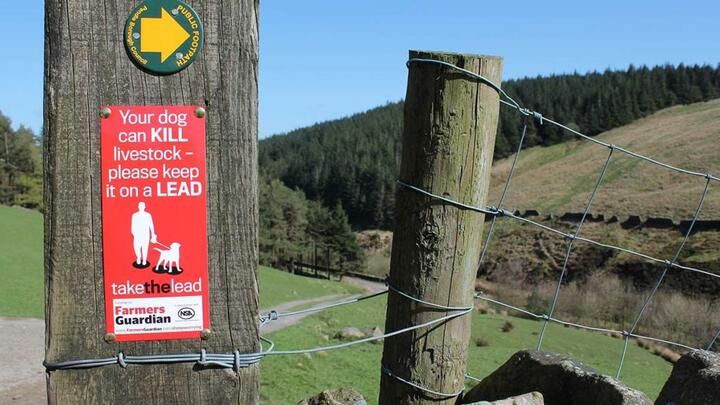
#FGTakeTheLead
Free signs warning dog owners to keep their dogs on a lead near livestock are available through Íæż½ã½ã's Take the Lead campaign, in association with the National Sheep Association.
To request yours, send a stamped self-addressed A4 envelope to: FG Take the Lead, Íæż½ã½ã, Unit 4, Fulwood Business Park, Preston, Lancashire, PR2 9NZ.
We will be able to send up to 25 signs.








